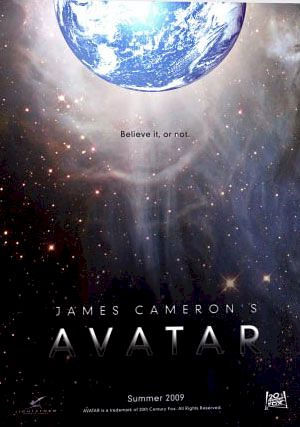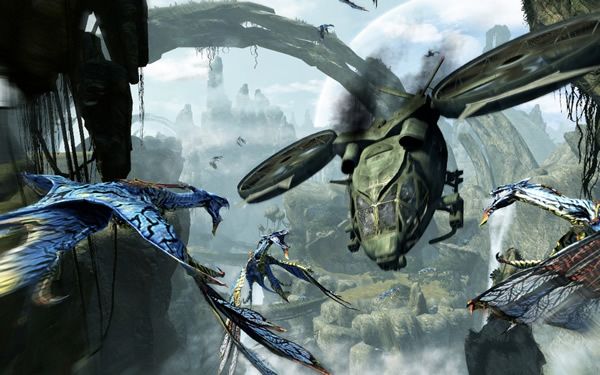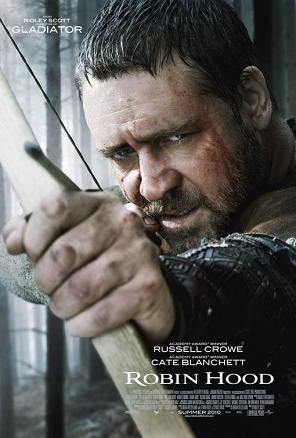What is the value of science fiction criticism, both in its literary form and as a medium used by the science fiction community to dig into the good and the bad of the genre? If you buy Kyle Brady's argument, its value is a negative number. Back in March of 2010, Brady wrote
an article on True/Slant about the damage criticism is doing to the science fiction genre. Unfortunately, it seems as if Brady missed the point of criticism and its value within the genre community. Without criticism there is only praise, and when praise dominates the market, nothing has any value; you really don't have to look much further than YouTube or Amazon.com to understand why praise without criticism fades into the background and contains no value.
Brady seems to think that criticism--specifically, harsh criticism--is potentially catastrophic, namely because it supposedly removes the value from "undying love and devotion" to the genre. The more critical and harsh certain blogs have become--he cites
io9 as a prime example--the faster the value of love and devotion decreases--to the point that said admiration fades from the background, leaving the genre with an empty hole. I don't buy this argument,
primarily because there is also so much meaningless admiration and praise flooding the Internet that any blog or news avenue trying to pay lip service to said admiration is really adding nothing to the conversation. What exactly do I contribute to the fans of Battlestar Galactica by writing about why I love Battlestar Galactica? I still write about it, but it's more for myself than for the fans of the show or for people who've never seen it. My admiration of BSG is essentially an empty gesture, except to me. Criticism, however, does add to the conversation, even if it is nitpicky. Why? Because to look at science fiction through a critical lens opens a dialogue about what is good and bad about genre, what works and doesn't work, and so on, which brings the community at large to the forefront, where they can question and demand better from the people who produce the things they love.
 In fact, I'd argue that we've become too nice in the science fiction community, giving so much space to the blindly devotional and not enough space to the deep thinkers. A prime example of this, I think, is Avatar, which Brady cites as an example of his argument.
In fact, I'd argue that we've become too nice in the science fiction community, giving so much space to the blindly devotional and not enough space to the deep thinkers. A prime example of this, I think, is Avatar, which Brady cites as an example of his argument.
 Of all the movies you could bring to the conversation, Cameron's "masterpiece" is probably the one film that most deserved what it got from its critics and detractors. Here is a film with an absurdly large budget and also the most amazing visuals ever put into a film--so amazing, in fact, that they've already begun changing how we make movies. But, for all that--all the money spent ($200-310 million, depending where you look)--it also has the most derivative story ever conceived for a major motion picture--so derivative, in fact, that it is almost painful. That's the problem with Avatar, and a point that Brady misses when he tries to indicate that all fiction and movies are derivative (they are, but that's another argument). It's not that Avatar is a derivative movie, it's that it is a derivative movie that knows it is one, and that anyone who saw it or heard about it knew from the start. This is not good storytelling, but lazy storytelling. The fact that most of the film's budget was spent on the visual effects is painfully obvious in the story. At least when Cameron tried to retell Titanic, he did so by adding something to it, by taking a story we already knew and creating unique, emotionally-engaging characters to spice things up (yes, I'll admit that as much as I hate on Titanic, I do think it's a good movie). Avatar was panned because those of us who write about the genre and were supposed to make up Cameron's core audience expected more from the man who gave us Aliens, The Abyss, and so on. Cameron is a director who knows how to merge beautiful visuals with strong stories and characters, and the idea that he could fail so miserably to deliver anything other than a giant special effects test was a disappointment to pretty much all of us. The criticism was necessary, because otherwise we're asking for more of this kind of garbage.
Of all the movies you could bring to the conversation, Cameron's "masterpiece" is probably the one film that most deserved what it got from its critics and detractors. Here is a film with an absurdly large budget and also the most amazing visuals ever put into a film--so amazing, in fact, that they've already begun changing how we make movies. But, for all that--all the money spent ($200-310 million, depending where you look)--it also has the most derivative story ever conceived for a major motion picture--so derivative, in fact, that it is almost painful. That's the problem with Avatar, and a point that Brady misses when he tries to indicate that all fiction and movies are derivative (they are, but that's another argument). It's not that Avatar is a derivative movie, it's that it is a derivative movie that knows it is one, and that anyone who saw it or heard about it knew from the start. This is not good storytelling, but lazy storytelling. The fact that most of the film's budget was spent on the visual effects is painfully obvious in the story. At least when Cameron tried to retell Titanic, he did so by adding something to it, by taking a story we already knew and creating unique, emotionally-engaging characters to spice things up (yes, I'll admit that as much as I hate on Titanic, I do think it's a good movie). Avatar was panned because those of us who write about the genre and were supposed to make up Cameron's core audience expected more from the man who gave us Aliens, The Abyss, and so on. Cameron is a director who knows how to merge beautiful visuals with strong stories and characters, and the idea that he could fail so miserably to deliver anything other than a giant special effects test was a disappointment to pretty much all of us. The criticism was necessary, because otherwise we're asking for more of this kind of garbage.
 Criticism isn't ruining science fiction; it's making it better. Without criticism, the genre can't grow. Devote yourself to your television shows, yes, but understand the flaws and let people know about it. We are the audience. If we want better, we have to show it. Battlestar Galactica, overall, is one of the best science fiction television shows to ever play on our screens, and if we ever hope to have more shows that take character and narrative depth as seriously as Ron D. Moore and his league of writers did, then we have to look at the rest of the genre and make out opinions known, even if they're negative. Science fiction had to earn the following it has today, and it didn't get to where it is now by cutting out the criticism. Look back through the history of the genre and you will see all manner of harsh criticism against the genre from people outside of it. Without that, the genre never would have grown and become what it is today: one of the biggest genres in the history of the narrative storytelling. If that isn't support for the value of criticism, then I don't know what is.
Criticism isn't ruining science fiction; it's making it better. Without criticism, the genre can't grow. Devote yourself to your television shows, yes, but understand the flaws and let people know about it. We are the audience. If we want better, we have to show it. Battlestar Galactica, overall, is one of the best science fiction television shows to ever play on our screens, and if we ever hope to have more shows that take character and narrative depth as seriously as Ron D. Moore and his league of writers did, then we have to look at the rest of the genre and make out opinions known, even if they're negative. Science fiction had to earn the following it has today, and it didn't get to where it is now by cutting out the criticism. Look back through the history of the genre and you will see all manner of harsh criticism against the genre from people outside of it. Without that, the genre never would have grown and become what it is today: one of the biggest genres in the history of the narrative storytelling. If that isn't support for the value of criticism, then I don't know what is.
 That is all. Happy Memorial Day...
That is all. Happy Memorial Day...
















